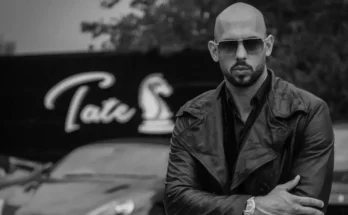Introduction
Sam Altman is a name now synonymous with modern artificial intelligence, bold technological innovation, and future-driven entrepreneurship. As the CEO of OpenAI, Altman has positioned himself at the very edge of humanity’s next big transformation — the rise of artificial general intelligence (AGI). But beyond the headlines, who really is Sam Altman? What has shaped his journey from a curious kid in Missouri to one of Silicon Valley’s most influential minds?
This comprehensive biography of Sam Altman explores his life, achievements, controversies, philosophies, and the deep impact he’s made — and continues to make — on the world. Whether you’re a tech enthusiast, entrepreneur, student, or someone fascinated by the people shaping the future, this is your deep dive into Sam Altman‘s remarkable story.
Chapter 1: Early Life and Education

Childhood in St. Louis
Samuel Harris Altman was born on April 22, 1985, in Chicago, Illinois, and raised in St. Louis, Missouri. He grew up in a supportive Jewish family that encouraged curiosity and independence. Sam developed an early interest in technology, reportedly receiving his first computer — an Apple Macintosh — at the age of 8. From that point forward, computers and programming became his world.
His parents, especially his mother, a dermatologist, were instrumental in providing an intellectually stimulating environment. As a child, Altman was introverted but highly observant. He spent countless hours tinkering with machines and exploring programming — not just for fun, but as a medium to solve problems creatively.
Coming Out and Identity
Sam Altman has been open about his identity as a gay man, which he revealed in various interviews and discussions. He believes that being open about his identity helped him develop the resilience and confidence needed in Silicon Valley’s high-pressure environment. His candid approach to personal matters has inspired many, particularly in tech spaces that often lack LGBTQ+ representation at the top levels.
Education at Stanford University
Sam Altman attended the prestigious John Burroughs School, where his intellectual interests flourished. After high school, he enrolled at Stanford University to study computer science. However, like many of Silicon Valley’s most impactful entrepreneurs, he didn’t stay long. After just two years, he dropped out in 2005 to pursue entrepreneurship full-time — a decision that would soon change his life.
While at Stanford, he met a close group of peers who would go on to become influential figures in tech themselves. Altman absorbed both theoretical knowledge and real-world skills, balancing rigorous computer science education with a practical understanding of how technology could reshape industries.
Chapter 2: The Birth of a Startup Mindset – Loopt and Early Entrepreneurial Moves
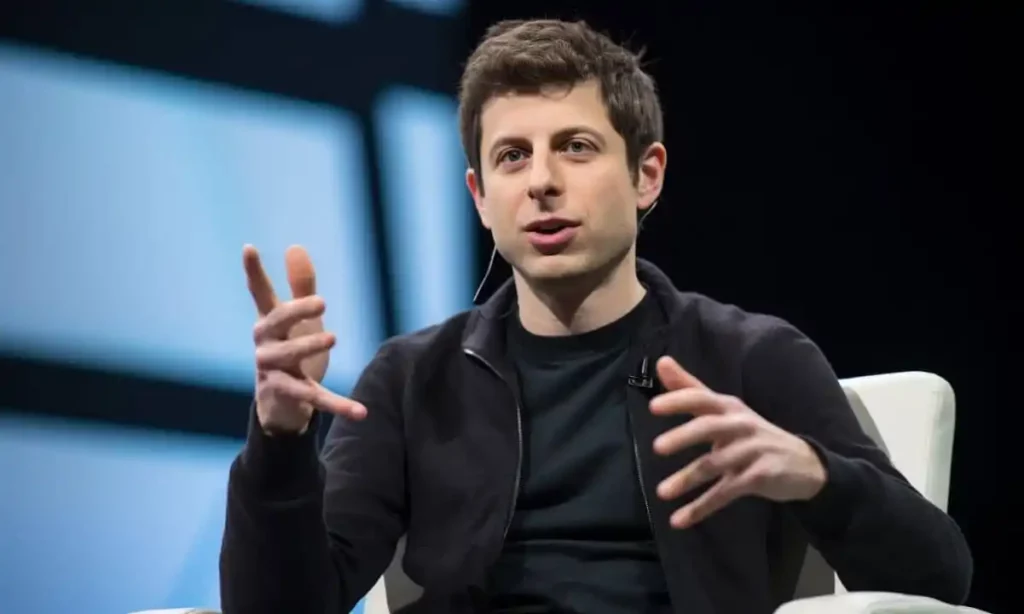
Founding Loopt: A Social Location Pioneer
While most 20-year-olds were stressing over midterms, Sam Altman was busy building a company that would become one of the first location-based social networking apps in the U.S. — Loopt.
Founded in 2005 alongside his Stanford classmates, Loopt was way ahead of its time. The app allowed users to share their location with friends in real time. It was a bold idea in an era before smartphones became ubiquitous and geolocation features were fully embraced.
Loopt wasn’t just a college side hustle. Sam had a bigger vision. He believed that mobile could become a social connector in ways the world hadn’t seen yet.
Y Combinator and the Early Breakthrough
In 2005, Sam Altman and his co-founders submitted Loopt to the inaugural batch of Y Combinator (YC) — a new startup accelerator founded by Paul Graham, Jessica Livingston, and others. YC was just beginning to reshape startup culture, and Altman became one of its earliest success stories.
Paul Graham later described Altman as one of the most impressive founders he had ever met. At just 19, Sam displayed a level of insight and clarity far beyond his age.
With YC backing, Loopt secured $30 million in funding from major investors like Sequoia Capital and New Enterprise Associates (NEA). Sam Altman had officially arrived in Silicon Valley.
Challenges and Competition
Despite its strong start, Loopt faced immense challenges. It competed directly with Foursquare, Facebook Places, and Google Latitude — giants that had more capital and more market access. While Loopt offered innovation, it struggled to achieve mass adoption.
Privacy concerns about location-sharing were also a barrier in the mid-2000s. Users were still hesitant about sharing their whereabouts, even with friends. While today’s apps like Find My Friends and Snapchat Maps make it seem normal, Loopt was a decade too early.
Exit and Lessons Learned
In 2012, Loopt was acquired by Green Dot Corporation for $43.4 million. It wasn’t a unicorn exit, but for Altman, it was an invaluable learning experience.
He once said in an interview:
“Loopt was a great failure. I learned more in that time than in any other period of my life.”
Sam realized that good technology isn’t enough. Timing, user psychology, and adaptability matter even more. This failure-turned-exit laid the groundwork for his next phase: becoming a guiding force behind the world’s best startups.
Chapter 3: The Y Combinator Era – Shaping Silicon Valley’s Next Generation
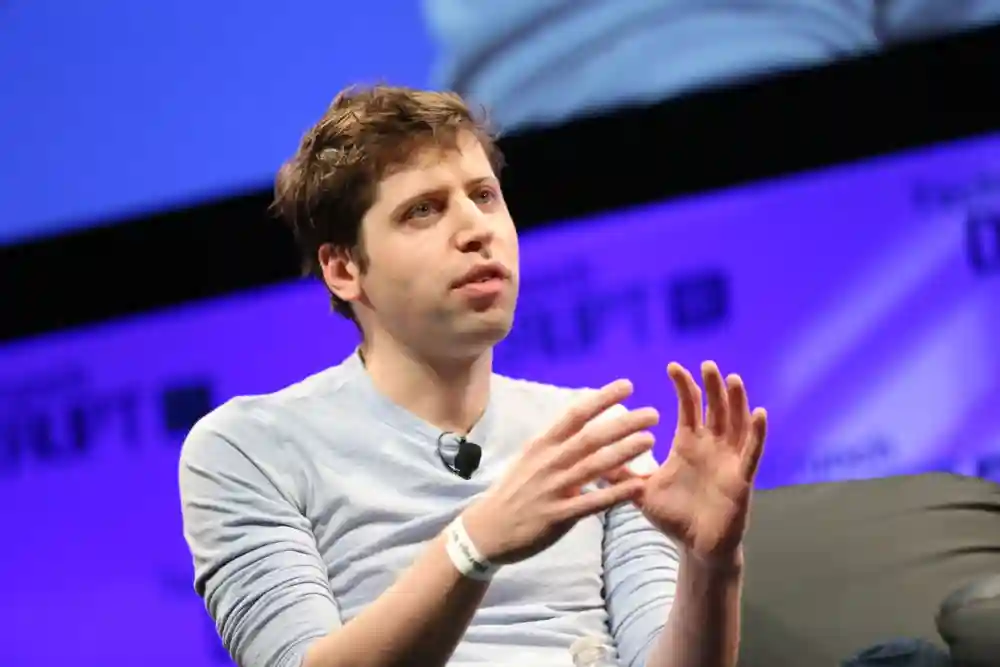
Stepping Into Leadership: President of Y Combinator
After exiting Loopt, Sam Altman didn’t fade into the background — he stepped into one of the most powerful roles in the startup ecosystem. In 2014, at just 29 years old, he was named President of Y Combinator, succeeding co-founder Paul Graham.
This was a monumental shift. YC had already produced breakout startups like Dropbox, Airbnb, and Reddit, but under Altman’s leadership, the accelerator aimed even higher. He focused on expanding YC’s vision — from funding “just software” to backing hard tech, clean energy, biotech, and even space exploration startups.
Altman’s Vision for YC
Under his leadership, Sam Altman expanded YC in multiple ways:
- YC Continuity Fund was introduced to offer follow-on funding to YC alumni.
- YC Research (now known as Open Research) was launched to explore moonshot projects.
- He pushed for inclusivity, increasing outreach to female and underrepresented founders.
- Altman emphasized founder support, bringing attention to the emotional and psychological toll of startup life.
He once stated:
“We have a responsibility to make sure that startups don’t just succeed, but do so ethically and sustainably.”
Backing the Unicorns
During his tenure, Sam Altman was involved in guiding and advising some of the world’s most valuable startups. Here are a few key names:
- Airbnb – revolutionized the travel and hospitality industry
- Stripe – changed the online payments landscape
- Reddit – the “front page of the internet”
- DoorDash – redefined food delivery
- Cruise Automation – self-driving tech company acquired by GM
- Ginkgo Bioworks – biotech startup disrupting synthetic biology
His ability to recognize patterns in successful companies and his deep empathy for founders made him one of the most respected minds in tech.
Startup Class and Open Knowledge
Altman believed in democratizing knowledge. In 2014, he launched “How to Start a Startup,” a free Stanford lecture series that brought in top Silicon Valley icons like Peter Thiel, Reid Hoffman, and Marc Andreessen to speak on topics like scaling, culture, and funding.
These lectures, available freely on YouTube and YC’s site, became a startup bible for young entrepreneurs worldwide.
Stepping Down to Focus on AI
In 2019, Sam Altman stepped down from his day-to-day role at YC to focus on a passion that had been brewing for years — Artificial Intelligence. By then, he was already deeply involved with OpenAI, and the opportunity to lead its journey into the future was irresistible.
But even after stepping back, Altman remained Chairman of YC Group, continuing to influence the accelerator’s direction.
Chapter 4: OpenAI – The AI Revolution Begins
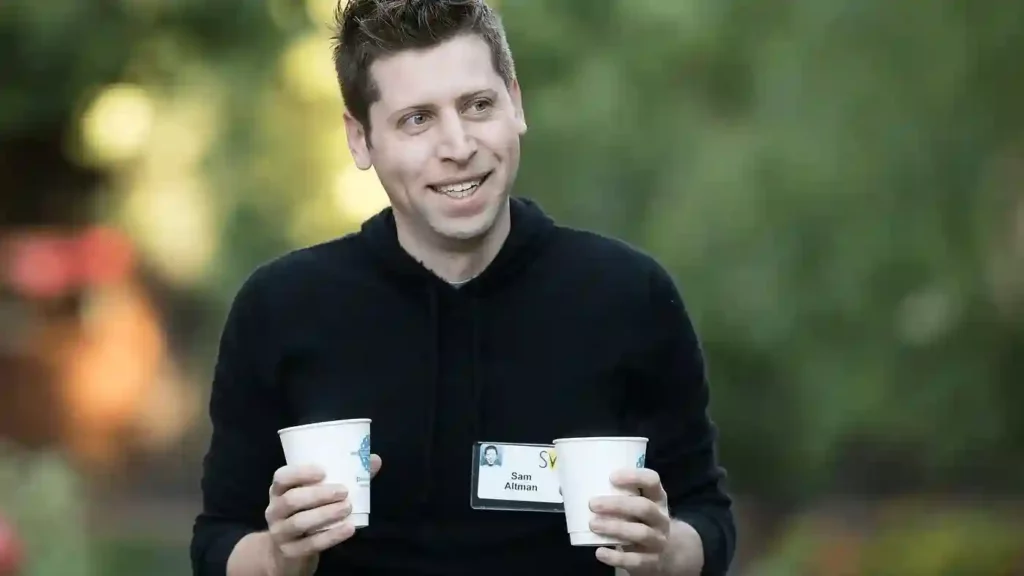
The Birth of OpenAI: A Mission-Driven Initiative
In December 2015, Sam Altman co-founded OpenAI alongside a team of tech visionaries, including Elon Musk, Greg Brockman, Ilya Sutskever, and others. The mission? Simple yet audacious:
“Ensure that artificial general intelligence (AGI) benefits all of humanity.”
Unlike traditional tech startups that focused on profits, OpenAI was launched as a non-profit research lab. The aim was to promote transparency, collaboration, and safety in AI development. Altman believed that the unchecked commercialization of powerful AI could pose significant risks to the world — and he wanted to offer a better alternative.
From Non-Profit to “Capped-Profit”
By 2019, the scope and cost of building cutting-edge AI had grown exponentially. OpenAI transitioned into a “capped-profit” model, forming a for-profit entity (OpenAI LP) governed by a non-profit parent. This hybrid structure allowed it to raise billions of dollars while staying true to its original values.
This change was controversial but necessary. Altman emphasized:
“We needed a structure that allowed us to attract capital but still aligned incentives with our mission.”
CEO of OpenAI: Altman Takes the Helm
In March 2019, Sam Altman became the CEO of OpenAI. This move marked his full-time commitment to AGI and reshaping the world through advanced machine learning.
His leadership brought clarity and focus. OpenAI began making rapid progress, introducing powerful models like:
- GPT-2 (2019) – Made headlines for being too “dangerous” to release initially.
- GPT-3 (2020) – A massive leap forward, with 175 billion parameters, powering tools like ChatGPT.
- Codex – The engine behind GitHub Copilot.
- DALL·E – AI that could generate stunning images from text prompts.
- Whisper – A versatile speech-to-text model.
- ChatGPT (2022) – The consumer product that changed everything.
ChatGPT – A Global Phenomenon
When ChatGPT launched publicly in November 2022, it went viral instantly. Within 5 days, it gained over 1 million users — a growth rate faster than Instagram, TikTok, or even Netflix.
Suddenly, Sam Altman wasn’t just a tech entrepreneur — he was the public face of a revolution. His name began trending on Google, Twitter (now X), and YouTube. World leaders, teachers, CEOs, and developers were discussing the implications of OpenAI’s work.
Governments began holding hearings. Schools started banning ChatGPT. Creatives both feared and embraced its power. And Sam? He toured countries, spoke at global AI forums, and became a thought leader on how AI should evolve responsibly.
The 2023 Shake-Up: Fired, Then Rehired
In November 2023, the tech world was rocked when OpenAI’s board announced that Sam Altman had been removed as CEO — citing concerns about transparency and communication.
The backlash was immediate:
- Microsoft, OpenAI’s biggest backer ($10B+ invested), offered him a new role instantly.
- OpenAI employees (including Greg Brockman) threatened mass resignation unless Altman was reinstated.
- Tech leaders, including Elon Musk and Satya Nadella, weighed in on the drama.
Just 5 days later, Sam Altman was reinstated as CEO, with a new board and restructured governance. It was one of the most dramatic boardroom reversals in Silicon Valley history.
Altman returned stronger, more confident, and with a clearer path forward for OpenAI.
Chapter 5: Sam Altman’s Vision – AGI, Universal Basic Income & the Human Future
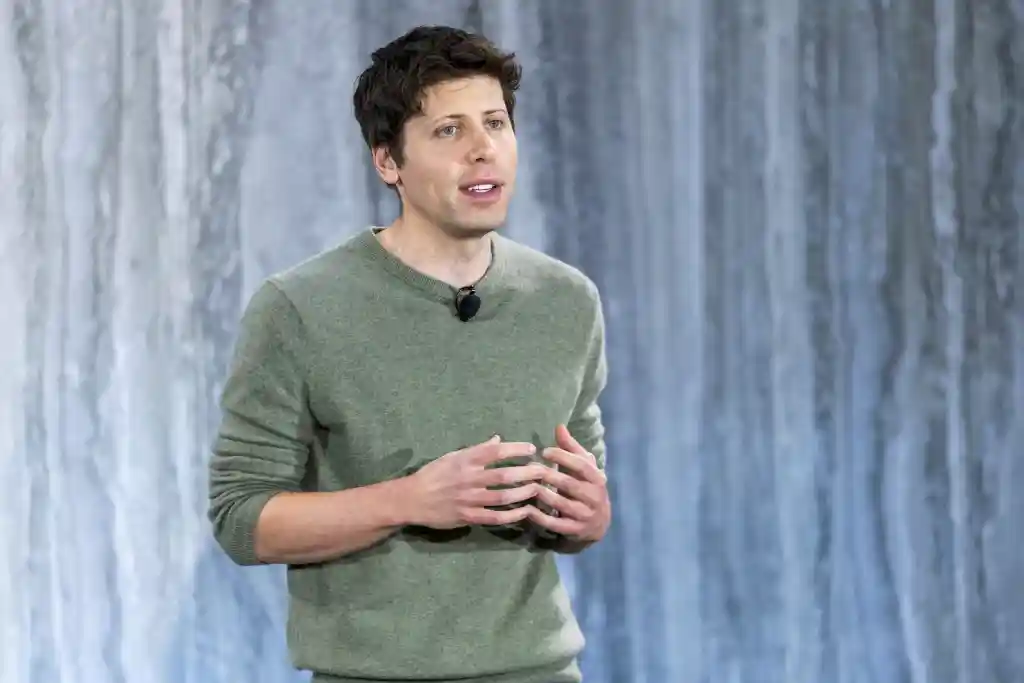
Philosophy on Artificial General Intelligence (AGI)
Sam Altman’s vision extends far beyond just making powerful AI tools. He is focused on creating Artificial General Intelligence — machines that can reason, learn, and perform any intellectual task a human can do.
In his blog posts and interviews, Altman has repeatedly said:
“The development of AGI will be the most important technological development in human history.”
But he’s not blindly optimistic. He recognizes the risks. He has spoken extensively about:
- Alignment – ensuring AGI goals match human values
- Governance – preventing misuse by corporations or authoritarian regimes
- Cooperation – promoting international collaboration over competition
OpenAI’s mission, according to Altman, is to benefit all of humanity, and he has publicly committed to not prioritizing profits over safety.
The Idea of Universal Basic Income (UBI)
One of Altman’s most controversial yet visionary ideas is Universal Basic Income — the concept of giving every citizen a guaranteed amount of money, regardless of employment status.
Why does he support it?
- AI may automate millions of jobs.
- Economic inequality could rise.
- People need a financial foundation to explore creative, caring, or personal pursuits.
To test this idea, Altman helped fund GiveDirectly’s UBI trial in Kenya and the U.S. He believes UBI could be a solution to technological unemployment, and he has committed to expanding such experiments globally.
He has stated:
“We need to separate income from work. It’s not just about survival — it’s about dignity.”
Technology, Ethics, and Human Progress
Altman’s thoughts go beyond AI. He frequently speaks on:
- Climate Change: He believes nuclear energy and fusion are key to a clean future (more on that in Part 6).
- Political Responsibility: He warns that tech giants must be accountable, especially when dealing with powerful tools.
- Education: He advocates for rethinking education systems to keep up with AI and digital transformation.
- Capitalism: He supports “capitalism reimagined”, where entrepreneurship exists, but long-term human benefit remains the core objective.
Altman isn’t afraid to challenge tech norms. He’s part Silicon Valley insider, part tech philosopher.
Sam Altman’s Writing & Speaking Influence
Sam’s writing style is clear, bold, and vision-driven. His blog blog.samaltman.com features must-read pieces like:
- “Moore’s Law for Everything” – predicting a world where everything becomes cheaper thanks to AI.
- “The Strength of Being Misunderstood” – a personal reflection on leadership and resilience.
- “Hard Startups” – encouraging founders to solve real, difficult problems.
His talks at events like TechCrunch Disrupt, Stanford, and World Economic Forum have influenced policies, startup strategies, and even government perspectives on AI.
Chapter 6: Investing in the Future – Clean Energy, Fusion & Crypto
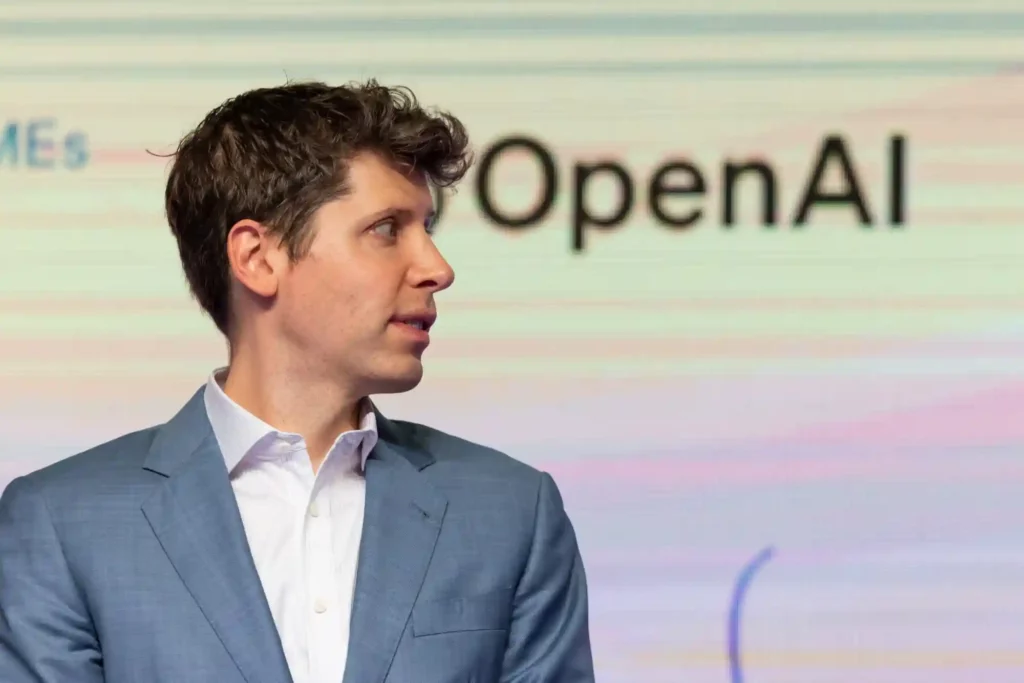
Oklo Inc. – Reimagining Nuclear Power
Sam Altman doesn’t just talk about future energy — he invests in it directly. He’s the Chairman of Oklo Inc., a nuclear energy startup focused on small modular reactors (SMRs). Their goal is to create affordable, safe, and scalable nuclear power.
Traditional nuclear reactors are massive, expensive, and politically controversial. Oklo is trying to change that by:
- Building reactors that are smaller than a shipping container
- Using advanced fuels like HALEU (High-Assay Low-Enriched Uranium)
- Running them autonomously for decades
- Generating near zero carbon emissions
Altman has been bullish on nuclear energy for over a decade. He believes:
“If we don’t fix energy, we can’t fix the climate. Nuclear is our best bet.”
He has backed Oklo through YC and continues to promote its vision at global forums.
Helion Energy – The Holy Grail: Nuclear Fusion
Even more ambitious than fission reactors is nuclear fusion — the process that powers the sun. It promises clean, limitless energy with zero carbon and minimal waste.
Sam Altman is Chairman and lead investor in Helion Energy, a startup racing to build the first commercial fusion reactor.
In 2021, Helion announced a $500 million funding round led by Altman — the largest private fusion funding ever. Their goal? To generate net electricity from fusion by 2028.
Why is Altman all-in on fusion?
- It could power the planet without emissions.
- It’s safer than fission (no meltdowns).
- It’s scalable for remote and industrial use.
- It would democratize energy access worldwide.
In his words:
“If fusion works, we solve the climate problem. It’s that simple.”
Altman’s willingness to fund long-term, risky, high-reward ventures sets him apart from typical tech investors.
Crypto & Web3 Curiosity
Though not a crypto evangelist, Sam Altman has shown interest in decentralized tech. He was an early backer of Ethereum and other blockchain experiments. His most controversial project in this space is Worldcoin — a global identity and digital currency network using iris scanning to verify humans online.
Critics called it dystopian. Fans say it could solve identity fraud and UBI distribution. Altman remains firm that digital identity is essential in an AI-dominated world.
He’s also been vocal about AI being synergistic with crypto — as both challenge traditional power structures.
A Futurist Investor at Heart
Altman’s investment portfolio includes:
- Neuralink (Elon Musk’s brain-tech firm)
- Cruise (self-driving cars)
- Asana, Pinterest, Instacart (early bets)
- Retro Biosciences (life extension startup)
- Notable biotech & climate-tech firms
Unlike VCs chasing fast exits, Altman bets on “outlier” ideas — projects that could take 10 years but change humanity forever.
Chapter 7: Public Persona – Media, Influence & Altman’s Voice in the Digital World
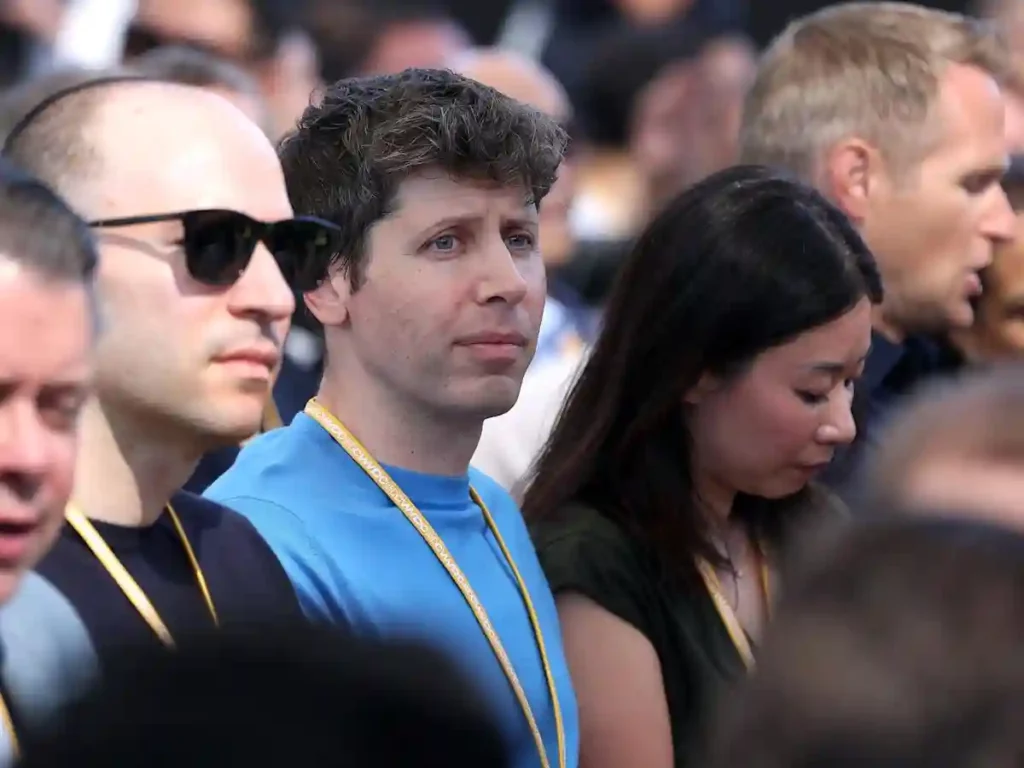
The Thought Leader on Stage
Over the years, Sam Altman has evolved from a behind-the-scenes tech founder to a globally recognized public figure. His keynote speeches, interviews, and panel discussions are now considered must-watch events for anyone in tech, AI, or entrepreneurship.
He has been featured on:
- Lex Fridman Podcast
- The New York Times DealBook Summit
- World Economic Forum (Davos)
- TechCrunch Disrupt
- MIT AI Conference
In these forums, Altman doesn’t just repeat talking points — he challenges assumptions. He speaks slowly, but with weight. His calm yet confident style allows him to make bold statements without sounding alarmist.
“AI will change the world more than anything in history — more than electricity, more than the internet,”
– Sam Altman, 2023.
Quotes That Went Viral
Several quotes from Altman have gone viral across platforms like Twitter, Reddit, and LinkedIn. A few of the most notable:
- “The best way to predict the future is to invent it — and then share it with everyone.”
- “I’m not afraid of AGI destroying the world. I’m afraid of AGI being controlled by the wrong people.”
- “Founders should chase intensity, not balance.”
- “AGI won’t come as a roar. It will come as a whisper.”
These lines are regularly shared by tech influencers, futurists, and startup founders as mantras for success and caution.
Twitter/X – The Real-Time Mind of Altman
Sam Altman’s Twitter/X is a window into his thoughts. He tweets regularly about:
- Product updates at OpenAI
- Long-term AI safety
- Life as a founder
- Book and article recommendations
- Cryptic hints about future tech
He’s also known for responding directly to developers, creators, and even critics — maintaining a transparent, non-corporate tone that makes him feel approachable despite his stature.
One of his most-liked tweets:
“ChatGPT is now a superpower for anyone with internet access.”
With over 2 million followers, Altman’s tweets often shape industry narratives, spark debates, and even affect startup funding decisions.
Media Relations & Public Image
Despite his fame, Altman keeps a relatively low profile compared to other tech moguls. He avoids lavish displays, rarely posts about personal luxury, and prefers intellectual discussions over lifestyle branding.
He is often described by journalists as:
- “Mild-mannered but fiercely intelligent”
- “Private yet present”
- “A rare blend of idealist and pragmatist”
In a world of overexposed CEOs, Sam Altman’s measured voice is often refreshing — making him a trusted source even among critics of AI.
Chapter 8: The Personal Side – Values, Lifestyle & Human Side of Sam Altman

Daily Life and Personality
Despite being one of the most powerful figures in tech, Sam Altman is known for his minimalist lifestyle. He’s not a fan of luxury for the sake of it. No flashy Instagram, no supercar obsession — he’s more interested in ideas than indulgence.
He has been described by colleagues as:
- Introverted but assertive
- Empathetic yet logical
- Patient and calm, even in the face of controversy
Altman often starts his day early and prioritizes deep work — blocking time to think, write, and code without distractions. He is known for being obsessively focused and ruthlessly curious.
“The best leaders I’ve known aren’t loud — they’re deep,”
a YC founder once said about him.
Relationships and Identity
Sam Altman is openly gay, and has spoken about how his experiences shaped his worldview. While he doesn’t speak often about his personal relationships, he has acknowledged that being part of the LGBTQ+ community taught him resilience, empathy, and emotional strength — qualities that carry over into his work.
He prefers to keep his romantic life private, but he’s a vocal supporter of LGBTQ+ rights and inclusivity in tech and business.
Beliefs and Worldview
Altman’s personal values influence nearly everything he does:
- He’s a believer in human progress, but with responsibility.
- He supports transparency and access to information for all.
- He’s an advocate for science, logic, and ethics guiding technology.
He also believes in existential risk management — planning not just for the next product, but for the survival and thriving of humanity in the face of global challenges.
“The future belongs to those who think long-term — not just quarters, but centuries,”
– Sam Altman
Spirituality and Philosophy
Though not religious in the traditional sense, Altman has expressed admiration for mysticism, meditation, and philosophical thinking. He’s a fan of:
- Stoicism (especially Marcus Aurelius)
- Existential philosophy
- Science fiction as a lens into moral questions
He’s also said to keep a notebook of long-term questions — not just about AI, but about existence, meaning, and the future of consciousness.
Hobbies and Interests
Even geniuses need a break. Sam Altman enjoys:
- Reading nonfiction and philosophical works
- Walking meetings to stimulate creativity
- Cooking vegetarian meals
- Occasionally playing strategy games
- Visiting nature retreats to recharge
He also invests time in writing — his blog is a mix of visionary essays, practical advice, and personal musings.
A Private Public Figure
In a world where CEOs flaunt private jets and tweet recklessly, Altman stands out. He’s:
- Private, but not secretive
- Famous, but not flashy
- Rich, but not reckless
His grounded nature and humble presentation make him relatable even as he builds technologies that could define humanity’s next era.
Chapter 9: Challenges, Criticism & Controversies – The Shadows of Innovation
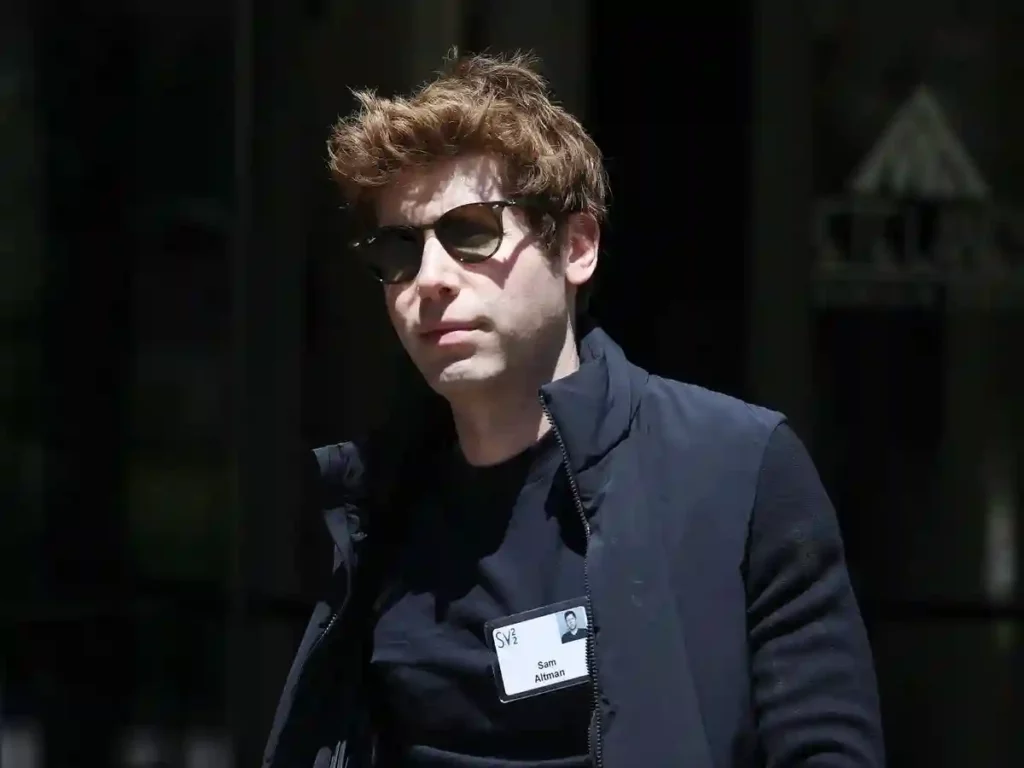
The OpenAI Boardroom Coup – November 2023
One of the most explosive moments in Sam Altman’s career came in November 2023, when he was abruptly fired from his role as CEO of OpenAI by the company’s board.
The reason? The board cited a breakdown in trust, alleging that Altman had not been fully transparent in his communications.
Reactions were instant and global:
- Greg Brockman, OpenAI’s president and co-founder, resigned in protest.
- Over 700 of OpenAI’s 770+ employees signed a letter threatening to quit and follow Altman to Microsoft if he wasn’t reinstated.
- Microsoft, OpenAI’s largest investor, offered Sam Altman a new role immediately and expressed full confidence in him.
The board’s decision backfired massively, resulting in public backlash and chaos inside OpenAI.
Within five days, Altman was reinstated as CEO, and the board was restructured, removing key members who pushed for his removal.
This episode showcased:
- Altman’s loyalty-driven leadership
- His massive support base inside and outside the company
- The fragility of governance in mission-driven tech orgs
Altman returned stronger — with more influence, a clearer vision, and the trust of major stakeholders.
Worldcoin – The Iris-Scanning Controversy
Altman also co-founded Worldcoin, a crypto-based project aiming to create a global digital identity system using iris scans to prove a person is human — not a bot.
While it sounds like sci-fi, it’s real and operational in many parts of the world.
Criticisms of Worldcoin include:
- Privacy violations – collecting biometric data from users, especially in poor regions
- Ethical concerns – targeting communities in Africa and Asia where consent is harder to verify
- Surveillance fears – creating a dystopian “eye-linked” identity system
Sam Altman defended Worldcoin, stating:
“To distribute global wealth through technology, we must first know who is human.”
However, privacy advocates, journalists, and even some governments have raised red flags. As of 2025, Worldcoin is under investigation in several countries for potential violations of privacy laws.
Critics of OpenAI’s AGI Push
Some leading AI experts have raised concerns about the direction OpenAI is taking under Altman’s leadership:
- That it’s moving too fast, prioritizing growth and hype over safety.
- That commercialization of ChatGPT undermines the non-profit mission.
- That Microsoft’s influence could sway the company’s values.
Elon Musk, once a co-founder of OpenAI, publicly criticized the company and Altman for turning it into a “closed, for-profit lab.”
Others argue that while Altman speaks about AGI alignment and safety, the pace of deployment and lack of transparency create serious risks.
How Sam Altman Responds
Unlike many tech leaders who go on the defensive, Altman usually takes a measured, strategic approach:
- He acknowledges concerns without dismissing them.
- He speaks publicly about regulatory frameworks, often inviting governments to work with OpenAI.
- He continues to share updates, participate in debates, and issue safety commitments — even pushing for AI regulation, which most companies avoid.
In a 2024 congressional hearing, Altman said:
“We need the world to regulate AI before it regulates us.”
While he doesn’t respond to every critique, his actions — transparency, global tours, and research sharing — show a man trying to balance innovation with ethics, in a world that’s still catching up.
Chapter 10: Legacy in Progress – How Sam Altman Is Redefining the Future
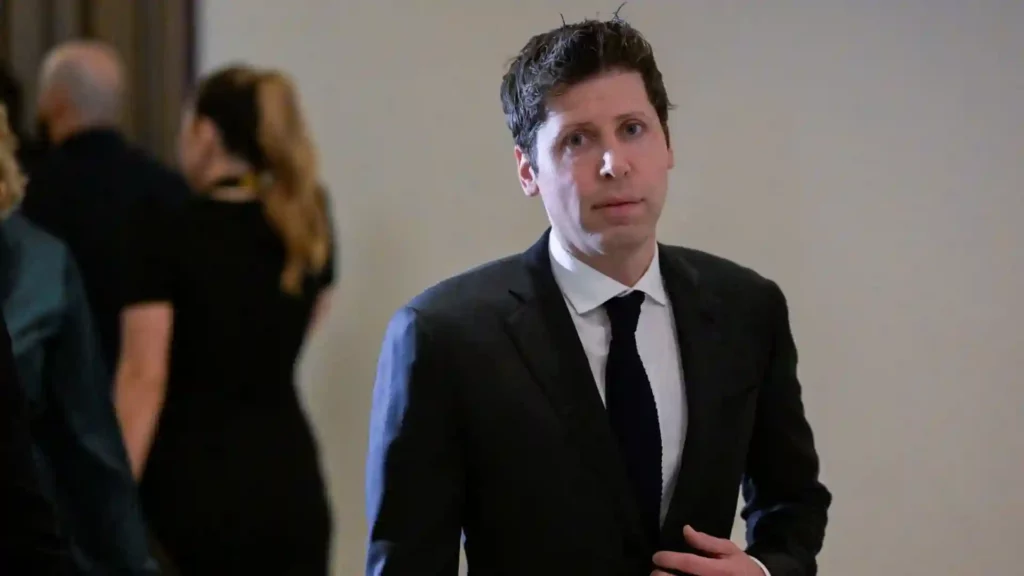
Redefining Leadership in Tech
In a world full of flashy billionaires and startup hype, Sam Altman represents a new kind of tech leader — thoughtful, strategic, grounded, and deeply committed to humanity’s long-term survival.
He isn’t just building companies. He’s shaping systems. He’s:
- Leading the AI revolution with a clear moral compass
- Promoting clean, limitless energy via Helion and Oklo
- Exploring fair digital identity through Worldcoin
- Driving support for UBI, longevity, and future governance
Altman isn’t simply reacting to the future — he’s engineering it.
Impact on the Startup Ecosystem
As President of Y Combinator, Sam helped nurture the rise of over 1,000 startups, many of which are now global names. Under his mentorship, YC became:
- A founder-first accelerator model
- A global brand for innovation
- A culture of ethics over exit
Altman gave advice, frameworks, and funding — but more importantly, he gave hope to thousands of entrepreneurs who didn’t fit the traditional mold.
Even after stepping down, his blog posts and startup lectures are studied like scriptures in startup circles.
Tech Ethics & Global Discourse
Unlike many who treat AI like a tool or toy, Altman views it as a global responsibility. He advocates for:
- International AI agreements (like nuclear treaties)
- Transparency in research and risks
- Global alignment on AGI development
He has urged governments, scientists, and even competitors to cooperate, not race blindly. This leadership has helped shift conversations from “cool apps” to existential questions.
His name now often appears beside global thinkers, not just tech moguls.
What People Will Remember
When history books of the digital age are written, Sam Altman will be remembered for:
- Pioneering safe AGI development
- Modernizing startup culture
- Investing in planet-saving technologies
- Balancing innovation with responsibility
- Redefining what tech success looks like
Whether you agree with all his moves or not, you cannot ignore him.
He once said:
“The only way to predict the future is to build it — carefully, consciously, and together.”
And that’s exactly what he’s doing.
What’s Next for Sam Altman?
At 40, Sam Altman’s story is far from over. The road ahead may include:
- Launching AGI-powered tools beyond ChatGPT
- Expanding Worldcoin into a universal ID + currency system
- Making fusion energy a commercial reality
- Becoming a global advisor on tech governance
- Possibly even entering global politics or diplomacy
Find More: VMate AI Review 2025 – Is This the Ultimate Roleplay Chatbot?


